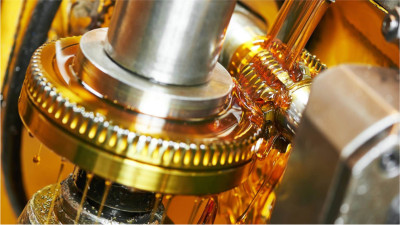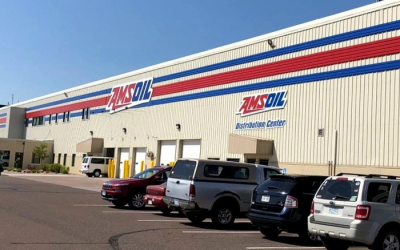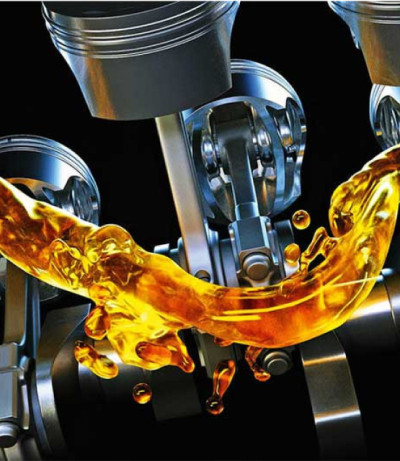Instructions for changing hydraulic oil
Why is choosing the correct lubricating oil important for your engine?
The engine is the factor that plays a decisive role in the ability of machines to operate for a long time. To keep the engine running smoothly, consumers need to choose the appropriate lubricants. Currently, there are two popular engine lubricant suggestions. These are Gear Oil and engine oil.
Using the wrong engine oil can damage sensitive components – notably the turbine, CAT and DPF. It will also reduce the life of the engine and machine parts. Furthermore, consumers may have to pay huge fees for maintenance and correcting mistakes when choosing the wrong type of engine oil.
Gear Oil is one of the products belonging to the industrial oil category
In addition, incompatible lubricating oils also reduce fuel economy. If the oil does not comply with basic specifications, it can easily void the vehicle's engine warranty. In fact, if the wrong Gear Oil or engine oil is used, the vehicle may not even be able to move very far. It may suddenly stop operating right from start-up.
In some cases, using Gear Oils can be easier than engine oils, because during operation they are not exposed to combustion by-products such as gases, acids and pollutants other. However, this type of oil must be guaranteed in terms of operating environment. This type of oil requires the metal surface to have a minimum contact area. Otherwise, they will destroy these details.
See more:
Full detailed Hydraulic Oil user manual 2020
Transformer Oil and important things you need to remember
What is high performance oil? What is the role like?
Some applications of industrial Gear Oil in life
While engine oils have US specifications set by API (American Petroleum Institute) and European limits set by ACEA, the main standard for Gear Oils such as GL-4 and GL-5 is set by API only. Although Gear Oils are used worldwide, they are distributed through the same system as engine oils. Furthermore, the SAE rating for Gear Oil is not exactly equivalent to that of motor oil.
Gear oils are used in many different fields
According to information related to the viscosity index of Gear Oil, products 75W90, 75W80, EP75W80 and 75W usually account for more than 50% of applications in the industrial sector. Oils in the GL-4 and GL-5 categories are specified for operation in machinery systems with a wider temperature range and provide additional speed to optimize engine transmission performance.
L-4 is often preferred by consumers for transmissions. The reason is that this type of oil has the ability to combine precise protection of wear-resistant parts and reduce the level of friction necessary for machine operation. This helps increase efficiency in the system synchronization process.
When it comes to automatic transmissions, power steering pumps, and torque converters, the consumer market is typically dominated by two common types of fluids. These are Mercon and Dexron Gear Oils.
These products have evolved over the years to accommodate Ford (Mercon) and General Motors (Dexron) brand automatic transmission designs. However, these products are also widely applied to a number of exclusive units and have a long history of development such as Warner Warner, Rolls Royce, Jaguar, etc.
Questions regarding the use of industrial Gear Oil
What indexes are related to the viscosity of Gear Oil?
When examining this data, we often see viscosity referenced not to ISO standards, but to American Gear Manufacturers Association (AGMA) grades. Sometimes this is based on Saybolt Universal Seconds (SUS). AGMA grade is a numerical rating that directly correlates to the viscosity grade of the transmission fluid.
For example, AGMA 5 oil is equivalent to ISO VG 220 oil, AGMA 6 to ISO VG 320, AGMA 7 to ISO VG 460, etc. You may also see the letters S or EP added to the AGMA layer. This refers to the need for a synthetic (S) oil or an oil with an extreme pressure (EP) additive formulation.
Indicators related to gear oil
Should I always stick with OEM-recommended products?
The answer to this question is definitely no! There are many indicators related to the performance of Gear Oil. The performance of this oil is in no way dependent on OEM recommendations. If you want to change the Gear Oil for your gearbox, please consult experienced people.
News














